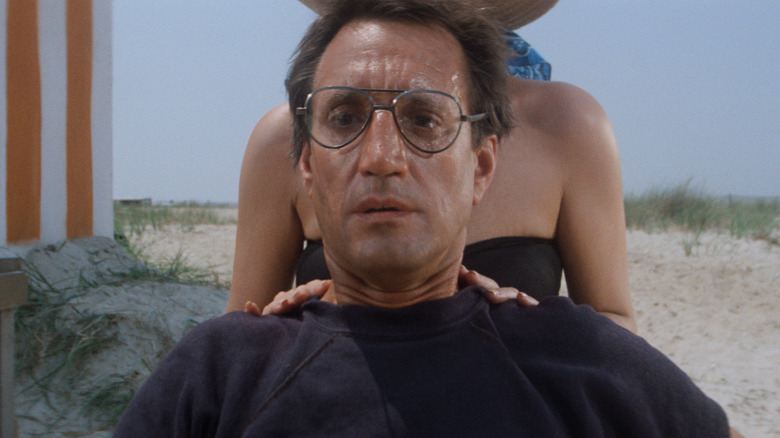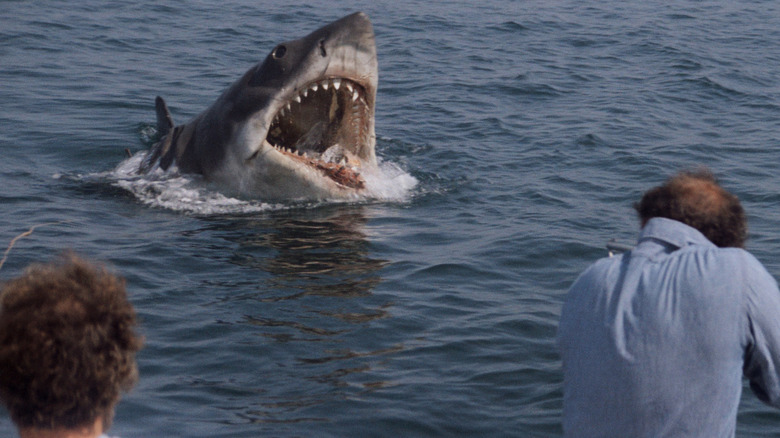Why Steven Spielberg Originally Didn't Like John Williams' Famous Jaws Theme
Composer John Williams' theme for the shark in "Jaws" is an instantly recognizable soundtrack cue and it has become a vivid, universal expression to signify oncoming danger. While the theme may now cut through international waters, symbolizing a threat or the parody of one, director Steven Spielberg thought it really was just a joke when Williams first played it for him.
Williams won his first Oscar for Best Original Score for "Jaws," and the American Film Institute later recognized it as the 6th greatest movie score of all time (with Williams' score for "Star Wars" ranking as #1.) Yet his shark theme for "Jaws" was not outwardly sophisticated, bouncing back and forth between two simple notes, building suspense with a tune that could be easily hummed.
On Williams' 90th birthday in February 2022, The Hollywood Reporter looked back on Spielberg's first reaction to the "Jaws" musical theme, which he once shared in a DVD featurette. Spielberg said:
"I expected to hear something kind of weird and melodic, something tonal, but eerie; something of another world, almost like outer space under the water. And what he played me instead, with two fingers on the lower keys, was 'dun dun, dun dun, dun dun.' And at first, I began to laugh. He had a great sense of humor, and I thought he was putting me on."
It's also scary when the music is withheld
After hearing the theme a few more times, Spielberg realized that it was perfect and that it could be a defining feature of "Jaws." Williams himself also observed how the music could herald the shark's arrival or be withheld later in the movie to keep the audience gripped with even more tension, since they would no longer know when the shark was coming amid the quiet of a vast sea expanse. As he put it:
"You could alter the speed of this ostinato; any kind of alteration, very slow and very fast, very soft and very loud. There were opportunities to advertise the shark with music. There are also opportunities when we don't have the music and, the audience has a sense of the absence. They sense the absence because they don't hear the 'dun dun' because you've conditioned them to do that."
Part of the reason why "Jaws" works so well is that it keeps the shark offscreen for much of its two-hour running time, playing instead on the viewer's fear of the unknown. This famously came about in part due to problems that the crew had with getting the mechanical shark to work right, making this one of film history's greatest accidents.
Until that immortal moment when the black-eyed Great White breaches the ocean's surface right next to the boat as Brody (Roy Scheider) is shoveling out chum, it's the music and only the occasional shark fin or sight of blood in the water that does the heavy lifting to establish the monster's presence. Having the music then drop out as Brody, Hooper (Richard Dreyfuss), and Quint (Robert Shaw) try to track the Great White's movements with flotation barrels makes it even more surprising and terrifying when it rears its enormous mouth full of shark teeth.

